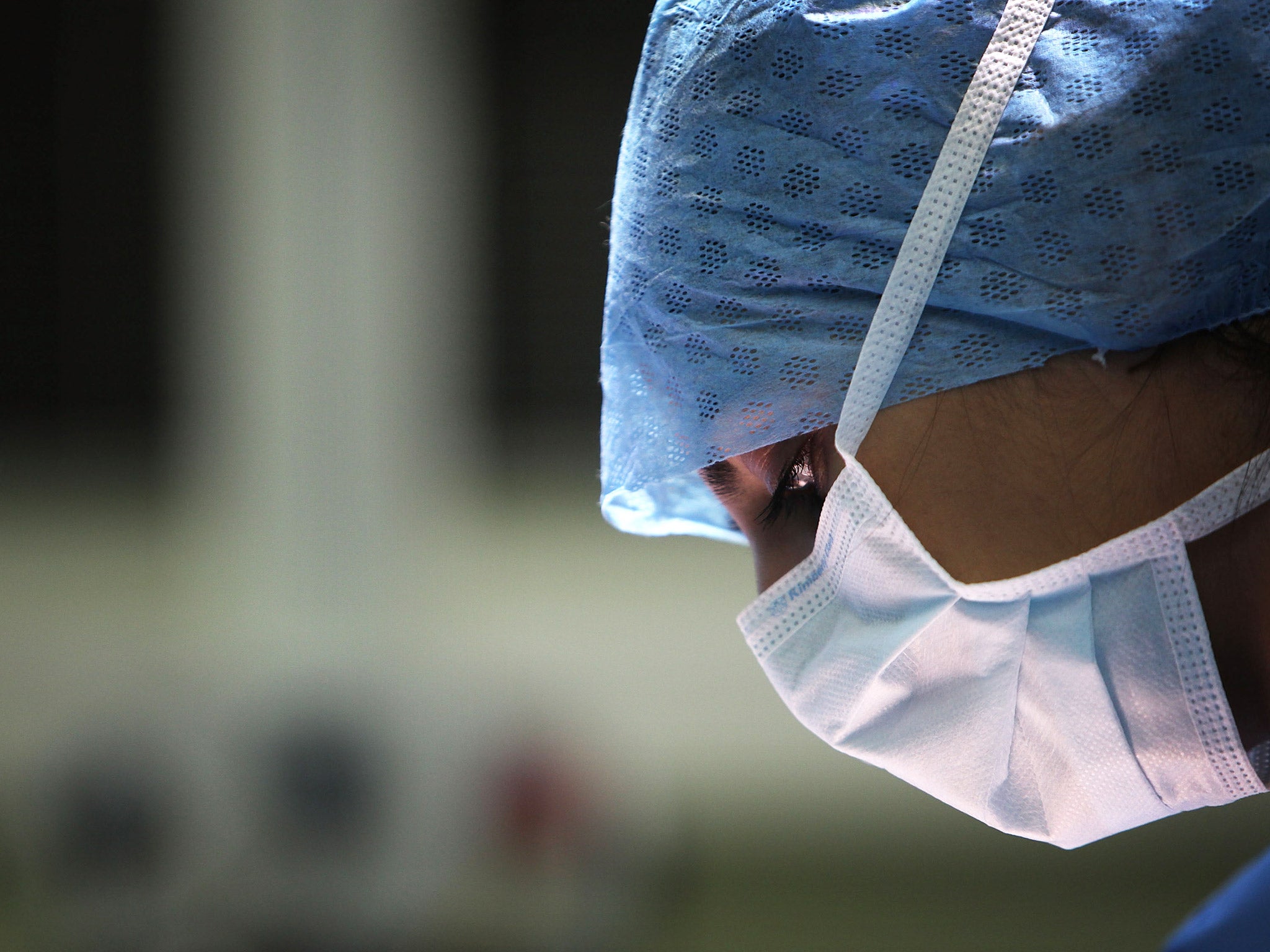Hospitals to receive £1.8bn bailout to tackle soaring deficits
New money makes up just under half the £3.8bn NHS funding increase pledged by the Government for next year

Your support helps us to tell the story
From reproductive rights to climate change to Big Tech, The Independent is on the ground when the story is developing. Whether it's investigating the financials of Elon Musk's pro-Trump PAC or producing our latest documentary, 'The A Word', which shines a light on the American women fighting for reproductive rights, we know how important it is to parse out the facts from the messaging.
At such a critical moment in US history, we need reporters on the ground. Your donation allows us to keep sending journalists to speak to both sides of the story.
The Independent is trusted by Americans across the entire political spectrum. And unlike many other quality news outlets, we choose not to lock Americans out of our reporting and analysis with paywalls. We believe quality journalism should be available to everyone, paid for by those who can afford it.
Your support makes all the difference.Hospitals in England will receive a £1.8bn bailout next year to help them tackle soaring deficits, the Department of Health has confirmed.
However, funding will be dependent on hospitals meeting “strict” conditions – including a requirement to publish plans on how they will expand the range of seven-day services available to patients.
The new money for hospitals makes up just under half the £3.8bn NHS funding increase pledged by the Government for next year. Hospitals and other health service providers are predicted to plunge to a collective deficit of £2.2bn by the end of this financial year.
Health Secretary Jeremy Hunt said NHS trusts would be offered help to improve their financial position, but would have to deliver credible plans to make savings, maintain performance against key waiting times standards and provide more services at the same time.
Hospitals will only get additional investment if they can deliver a plan showing how they will cut their deficit and show how they will make savings on procurement and staff costs, while at the same time continuing to meet the four hour A&E waiting time target and 18-week target for routine operations.
They will also have to set out “clear and credible” plans for achieving what the Government terms “seven day services.” Hospitals already operate 24/7, but the Government wants more services, such as scans and tests, to be as accessible at the weekend as they are during the week.
However, after years of slow growth in health funding, hospital performance against key targets such as the A&E waiting time standard has already dropped significantly, and discontent is widespread among staff.
The Department of Health said that “sanctions” would be included as part of the funding to ensure compliance with the measures.
Mr Hunt said: “We’re offering trusts help to improve their financial position and transform services for patients based on that planned investment, subject to strict conditions. This will allow hospitals to focus their efforts on making the NHS a truly 7 day service, offering the same excellent world class care every day of the week.”
Join our commenting forum
Join thought-provoking conversations, follow other Independent readers and see their replies
Comments